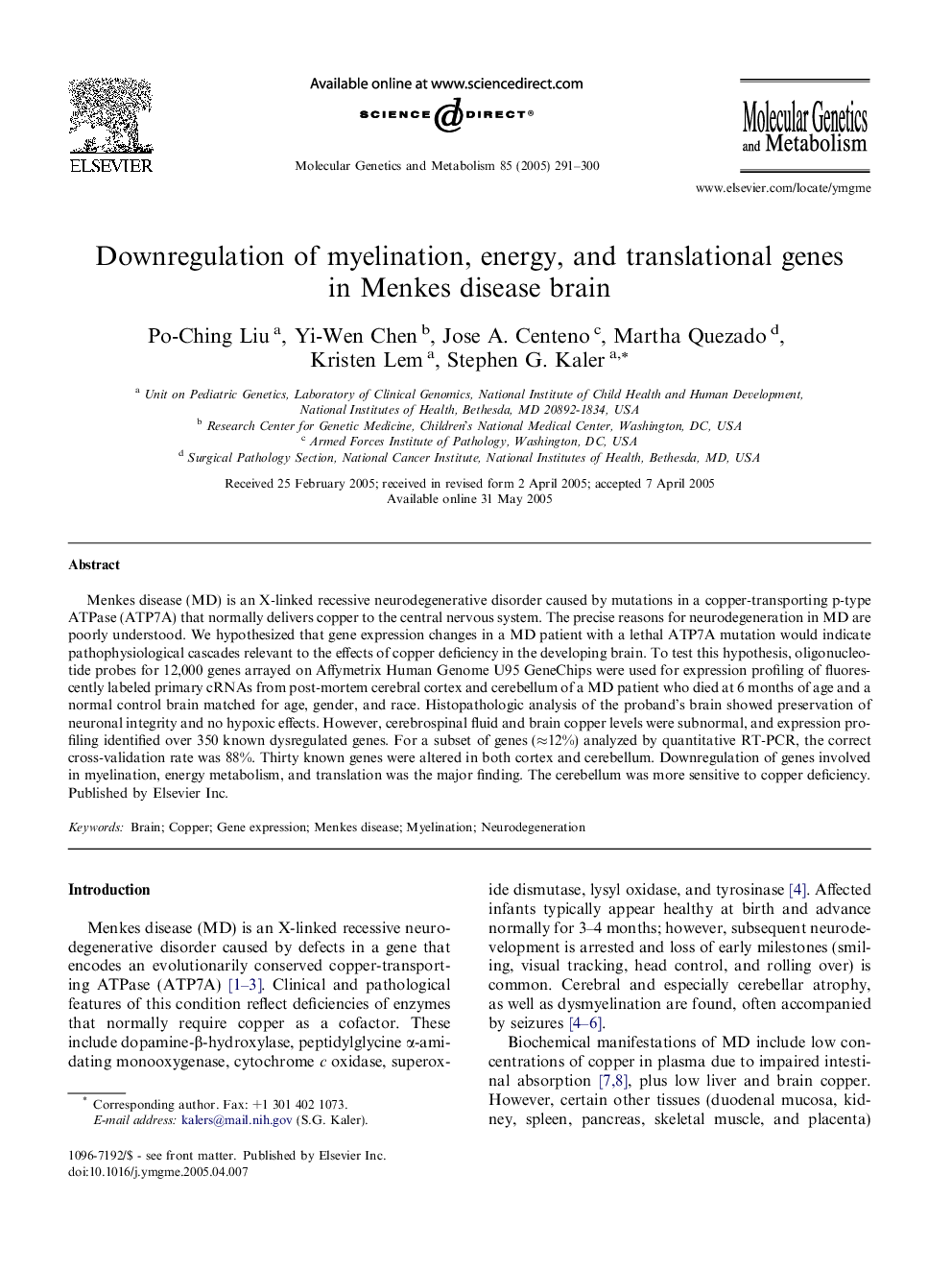| Article ID | Journal | Published Year | Pages | File Type |
|---|---|---|---|---|
| 10834832 | Molecular Genetics and Metabolism | 2005 | 10 Pages |
Abstract
Menkes disease (MD) is an X-linked recessive neurodegenerative disorder caused by mutations in a copper-transporting p-type ATPase (ATP7A) that normally delivers copper to the central nervous system. The precise reasons for neurodegeneration in MD are poorly understood. We hypothesized that gene expression changes in a MD patient with a lethal ATP7A mutation would indicate pathophysiological cascades relevant to the effects of copper deficiency in the developing brain. To test this hypothesis, oligonucleotide probes for 12,000 genes arrayed on Affymetrix Human Genome U95 GeneChips were used for expression profiling of fluorescently labeled primary cRNAs from post-mortem cerebral cortex and cerebellum of a MD patient who died at 6 months of age and a normal control brain matched for age, gender, and race. Histopathologic analysis of the proband's brain showed preservation of neuronal integrity and no hypoxic effects. However, cerebrospinal fluid and brain copper levels were subnormal, and expression profiling identified over 350 known dysregulated genes. For a subset of genes (â12%) analyzed by quantitative RT-PCR, the correct cross-validation rate was 88%. Thirty known genes were altered in both cortex and cerebellum. Downregulation of genes involved in myelination, energy metabolism, and translation was the major finding. The cerebellum was more sensitive to copper deficiency.
Related Topics
Life Sciences
Biochemistry, Genetics and Molecular Biology
Biochemistry
Authors
Po-Ching Liu, Yi-Wen Chen, Jose A. Centeno, Martha Quezado, Kristen Lem, Stephen G. Kaler,
